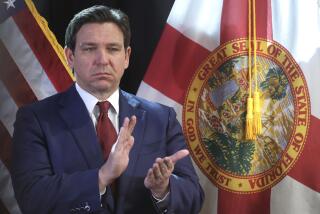Turkey tries to block Twitter, is met with worldwide ridicule
GAZIENTEP, Turkey – A government attempt to block access to Twitter in Turkey drew international criticism and widespread ridicule on Friday, much of it online.
The flap, which also exacerbated a growing split between president Abdullah Gul and Prime Minister Recep Tayyip Erdogan, came nine days before bellwether municipal elections. The polling is considered a key test of Erdogan’s standing, which has been eroded by an ongoing corruption scandal.
Access to the micro-blogging site for Turkish users was restricted late Thursday, hours after Erdogan vowed in a speech to “eradicate” it. Would-be users encountered a notice from the state telecommunications authority citing court action in blocking the site.
However, Turkey’s 12 million Twitter users could still tweet via text message, or use other technical means to circumvent the restrictions – and they did so with gusto.
Turkish users posted more than half a million tweets in the hours after the ban, while the hashtag #twitterblockedturkey became a trending topic worldwide, according to the Turkish newspaper Hurriyet. Many mocked the heavy-handedness of the move, posting images of Twitter’s blue-bird icon circling the prime minister’s head or vanishing in a cloud of tear gas.
Erdogan, who has been fighting for months to shake off the corruption allegations, has flailed repeatedly at various types of social media, saying they are being used as tools to foment unrest. Turkey has sporadically banned YouTube in the past.
Protest organizers have used Twitter and Facebook to gather demonstrators, and social media users have also posted recordings and documents linked to the corruption probe, much of it appearing to incriminate Erdogan and his inner circle.
Criticism came from both inside and outside Turkey. President Gul took to Twitter to protest, saying the shutdown of social media platforms “cannot be approved.” The European Union’s enlargement commissioner, Stefan Fule, tweeted that he was “gravely concerned,” adding that freedom of communication was a “fundamental EU value.”
Johnson is a special correspondent. Staff writer Laura King contributed to this report from Cairo.
More to Read
Start your day right
Sign up for Essential California for news, features and recommendations from the L.A. Times and beyond in your inbox six days a week.
You may occasionally receive promotional content from the Los Angeles Times.






